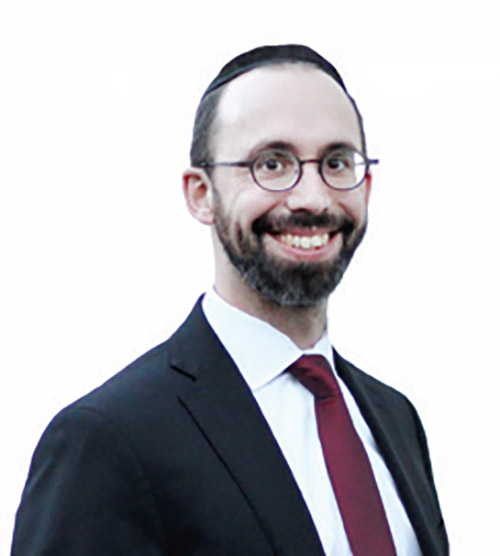
Yaakov approached his father the night before his wedding to talk. “What’s on your mind, Yaakov?” his father asked. “I am getting married tomorrow,” he replied. “You are the best parents in the world, but I haven’t always been the best son. There are things I did I never told you about and I need to ask forgiveness. When I was in high school, I would sneak out of the house late at night and take your car,” he said. His father nodded his head. “On occasion, I took money from Mommy’s pocketbook for spending, and the hole in the carpet: it wasn’t from the cleaning lady. Truthfully, when you went away for a week’s vacation, I invited a whole group of friends over and…” Yaakov’s father just nodded. “Aren’t you upset?” asked Yaakov. “Aren’t you surprised?” His father looked back lovingly at Yaakov. “I knew you took the car and the money, had a party—all of it. But I am very happy to see you have matured and that these things are no longer part of who you are. I’m even happier that you feel comfortable enough to open up to me,” he said. Yaakov and his father then shared a big hug.
A central part of our tefillos (prayers) on Yom Kippur revolve around reciting Viduy (verbal confession)—one of the four integral components of teshuva—stopping the performance of the sin, expressing remorse, accepting upon oneself not to commit the sin again, and Viduy.
Rabbeinu Yona says Yom Kippur is the day of the year for the mitzvah of teshuva. In fact, Rav Nosson Wachtfogel says it’s too overwhelming to consider our shortcomings during the rest of the days of the year. It’s only on Yom Kippur that we are really able to face our faults and rise above them.
The Mabit says Viduy can achieve a pardon only when accompanied by the other three components. Yet, the Bnei Yissaschar surprisingly says that reciting Viduy by itself during Yom Kippur may change us enough to effect a pardon! In the Beis Hamikdash, our path to purification was through the kohen gadol on Yom Kippur, as he brought the various sacrifices to effect a pardon for himself and for all of klal Yisroel. The pardon was granted mainly as a result of the recitation of Viduy, as Targum Yonosan ben Uziel translates the words v’chiper ba’ado as “he will achieve forgiveness through his words of viduy’ (Vayikra 16). The Rambam even lists Viduy as an independent mitzvah. Why is Viduy so key and how does it accomplish a forgiveness?
The word Viduy means to admit or confess. When we admit, we are exposing our shortcomings and faults to Hashem. This creates an honest relationship with Hashem—a true closeness.
On Rosh Hashanah we will blow the shofar. At the conclusion of Yom Kippur we will also sound the shofar. The Gemara Rosh Hashanah contrasts the two: the shofar of Rosh Hashanah should be bent, while the shofar of Yom Kippur in the Beis Hamikdash must be straight like a trumpet. The Gemara tells us the straightness of the shofar indicates that our focus on Yom Kippur is to be a “straight arrow.” Yom Kippur is about opening up to Hashem in a truly honest fashion.
Most of us have put up many walls between ourselves and Hashem. The Almighty wants those walls taken down. The Sfas Emes tells us each mitzvah corresponds to a specific day in the calendar. Yom Kippur corresponds to the mitzvah of bris milah (circumcision). The orlah—foreskin—represents a blockage or barrier. Yom Kippur is all about removing the blockages that prevent us from connecting deeply with Hashem.
When we begin our Yom Kippur prayers we will recite Viduy a total of 11 times!! Why the need to repeat Viduy so many times?
Rav Shimshon Pincus explains that Yom Kippur is a process. As the day progresses, our closeness to Hashem increases. Our words and our fasting help us recognize the greatness of Hashem. That’s when regret sets in—when we truly appreciate what Hashem does for us and recognize that we have not fully kept our part of the bargain. We don’t want our aveiros (sins) to get in the way of Hashem’s blessings. By the end of Yom Kippur our clarity is excellent and our regret truly sincere.
Remember: our Heavenly Father knows what we’ve done in the past year but is so happy we want to confide in Him. Confessing and being honest—that’s a relationship. On Yom Kippur, Hashem is our loving father waiting with outstretched arms and we should feel secure in furthering that beautiful relationship.
Rabbi Baruch Bodenheim is the associate rosh yeshiva of Passaic Torah Institute (PTI)/Yeshiva Ner Boruch. PTI has attracted people from all over northern New Jersey, including Teaneck, Paramus, Rockaway and Fair Lawn. He initiated and continues to lead a multi-level Gemara-learning program. Recently he has spread out beyond PTI to begin a weekly beis midrash program with in-depth chavrusa learning in Livingston, Fort Lee and a monthly group in West Caldwell. His email is rb@ptiweb.org.










